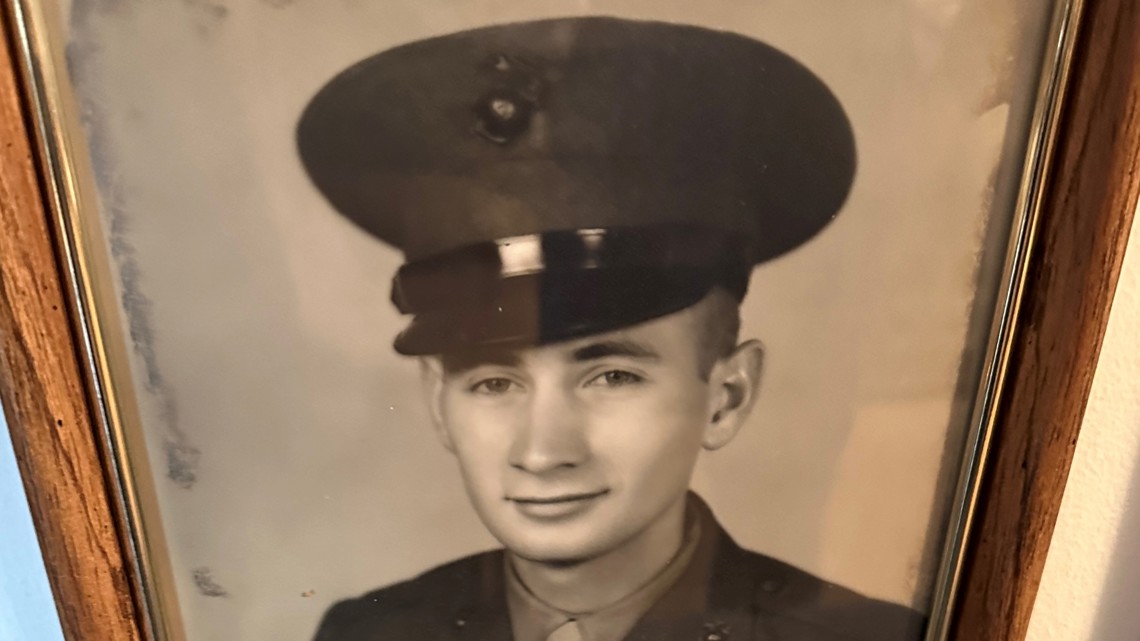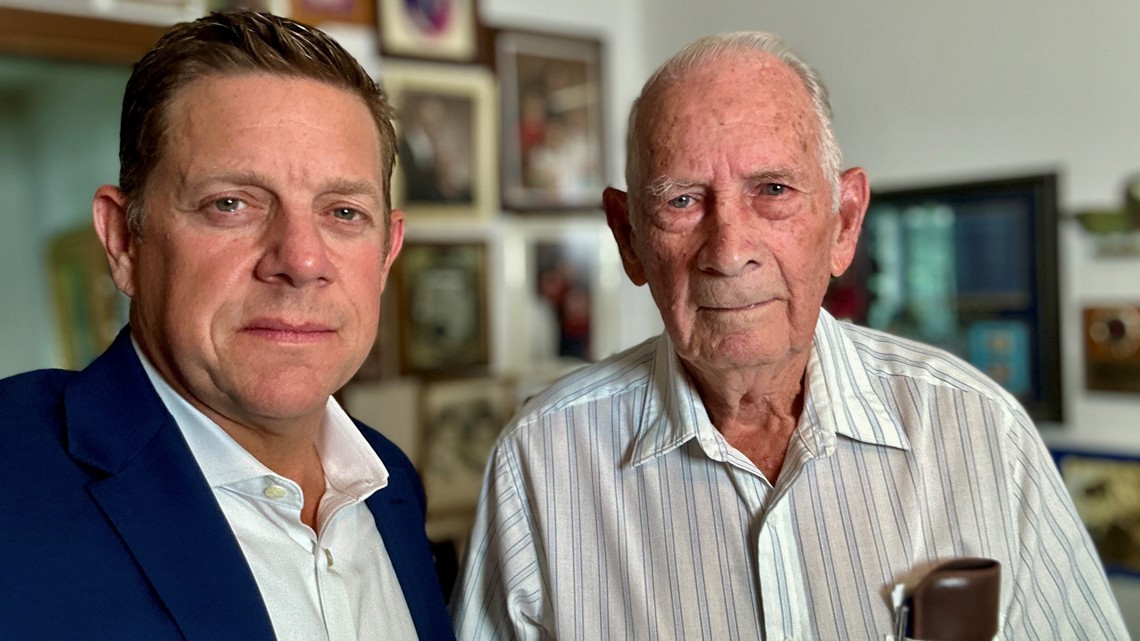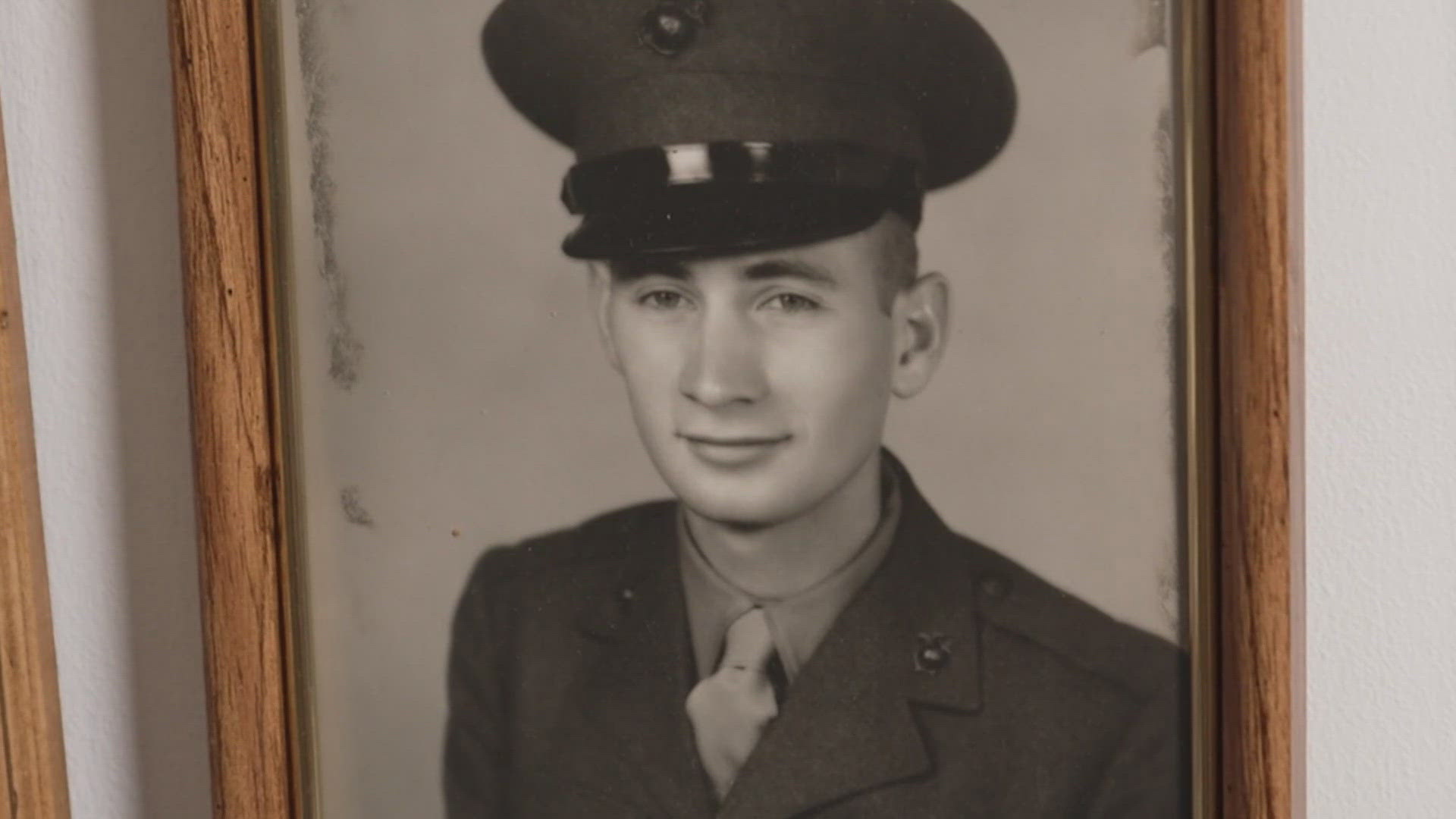KNOXVILLE, Tenn. — A Marine veteran was a teenager when he joined one of the most infamous battles at the Chosin Reservoir during the war in Korea.
“Just living, not day-to-day. You was living more or less minute-to-minute a lot of the time,” said Marine veteran Bruce Farr.
His unit was tasked with holding a strategic hill for close to a week. Of the almost 230 Americans, almost half his company was wounded or killed in fighting at all hours of the day and night in temperatures dipping to 54 degrees below zero.
“We had to hold East Hill at all costs. Nobody could hold it till my company got in there, because they didn't have the manpower,” said Farr.
Reflecting on what he saw during that battle, a constant wave of stretchers comes first to mind — the wounded and the dead.


“You’ve got to think that injury or death is going to come to somebody els, not to you. You’ve got to think you are invincible, but you still got to use some common sense,” said Farr.
He is now 95 years old and still works on his East Tennessee farm. The Marine machine gunner survived the fight at Chosin Reservoir with barley a scratch, but weeks later “friendly fire” from American artillery wounded him so severely that he was forced off the battlefield and sent home from war.
In addition to our on camera interview, Mr. Farr answered the following 10 questions about the influence his military service has had on his life.


1.What one person influenced you most in life?
Probably my dad. From a very poor upbringing he did well to raise 5 kids and was just a big influence on my life.
2. Do you feel honored and respected for serving your country?
Yes I do. Expecially in the later years. Quite a different way of life than it was in the 50’s and 60’s.
3. How can people thank you for your service?
I don’t expect any recognition. All I do just help people understand how we got this way of life. It cost a lot of lives. I lost a lot of good friends in Korea.
4. How do you honor your fellow service men and women?
I admire each an every one of them. My heart will always be with the Marines but I admire all branches.
5. How do you think this generation of service men and women is different or similar to yours?
They have a better education than I had. The people I see today are doing a good job. God bless them for enlisting.
6. What influence did your military service have on the rest of your life?
I cannot begin to tell you. It’s as an important as marriage or graduation. It would do everybody some good.
7. Does your family have a history of military service?
I had a Marine brother and an uncle who also served as a Marine in WWI.
8. Would you encourage your son, daughter or other younger generations in your family to join the service?
If they choose to go, I certainly admire them for it.
9. How has your opinion of war changed?
You live through it thinking you are invincible. I don’t think we will ever have another one like Korea.
10. How did your military experience shape your faith?
It made me appreciate life a whole lot more.

